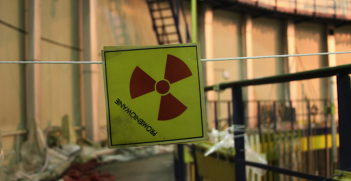Brexit: Russia and Europe's Far Right

The British referendum offers Russia a welcome opportunity to undermine European stability further. For the Russian government a divided Europe is a goal that would allow it to exert greater economic and political influence in the region and regain influence in the Eastern European states that are increasingly looking west instead of east.
The Brexit poll in the United Kingdom will reverberate through Europe for months to come as politicians scramble to figure out what the results mean. With the European Union (EU) already facing pressure from the Greek debt crisis and the mass immigration of Middle Eastern refugees, having one of its main members leave may place even more strain on an already creaking system. For the Russian government however, the British referendum may offer a welcome opportunity to further undermine European stability.
Russia regards the EU with distrust and stands to benefit from internal weakness. For the Russian government a divided Europe is a goal that would allow it to exert greater economic and political influence in the region and regain influence in the Eastern European states that are increasingly looking west instead of east. To this end the Russian government looks to exploit internal European issues and foster anti-EU groups with the Union. Russia has tried to use the Greek debt crisis to pull Greece away from the EU, it has capitalised on the false claims of the sexual assault of a Russian girl in Germany to attack the Merkel government and it has fostered lasting ties with the far right throughout Europe.
For the far right, Russia in many ways represents an ideological light on the hill. The Russian government has passed homophobic laws and restricted religious rights whilst enshrining the Russian Orthodox Church as the state religion. It has violently suppressed dissent and continues to advance a military and nationalist revival. For parties worried about a decline in European values, who believe in an avowedly Christian basis for European states and who view their political opponents as traitors, these policies are an example to be followed. Nigel Farage, the leader of the UK Independence Party, has stated that Vladimir Putin is the world leader he most admires whilst in Greece, Golden Dawn has pushed for a strategic axis based around the mutual religion of the Orthodox nations.
Accusations of political parties of the far right receiving Russian funding have been occurring for a while, with Hungary’s Jobik and Bulgaria’s Attack both being accused of receiving Russian money. To add to this, in 2014 it was confirmed that France’s National Front had received a loan of 9 million euros from a bank with close ties to the Kremlin. Russian support goes deeper than loans of money and many parties receive favourable coverage from the foreign-oriented news service, Russia Today (or RT). This helps elevate the status of politicians who may find themselves struggling to get attention from the media in their own countries, whilst giving RT talking heads it knows it can rely on to advance the correct views.
The right wing parties of Europe have worked in other ways to help advance Russia’s agenda. After Russia invaded Ukraine, the EU Parliament voted to implement sanctions and the pro-Russian parties of the European Parliament quickly moved to oppose them and voted against them. More recently the anti-EU parties of Europe and Russia have capitalised off each other’s propaganda on the Syrian war, drumming up support for the Assad regime and hatred of the refugees fleeing it. Most importantly, Euroscepticism lines up with one of Russia’s key goals in Europe: the undermining of the EU.
Eurosceptics throughout the EU will be emboldened by the results in the UK and will move to try and replicate them in their own countries. For Russia, with one of the key players in the EU already leaving there exists an opportunity to exploit this latest shock. The Russian government is likely to provide additional support to its allies within the EU to try and maintain momentum and peel off more members of the union. There is a threat for the Russian government as well. Britain has long been apathetic about the EU and has has acted accordingly. The loss of Britain may provide a frequently fragmented union with greater unity of purpose and improve its notorious inefficiency.
When Putin was faced with rapid change in Ukraine he acted to try and change the situation to Russia’s advantage. Russia may not be capable of acting militarily against the wider EU, but it is likely this bias for action will lead it to try and further empower those who seek to bring the EU down from the inside. It is highly likely there will be an increase in Russian financial and propaganda support for those parties who will to try and prevent the EU from recovering from its recent shocks and push it towards greater disunity.
Even without Russia, the Eurosceptic parties of the EU will be emboldened by Britain’s choice and seek to capitalise on it within their own nations. For Russia though, the uncertainty caused by the vote offers the ability to undermine an alliance regarded as a threat. It is highly likely that Russia will seek to use its existing relationships to exploit the situation and try to prevent the EU from recovering from the loss of one of its main members.
James Leask has a BA in Arts from the University of Western Australia and an Honours from Monash University. He has previously worked with Access Aid International as a volunteer teacher and as the administrative editor of Humanitarian Journal. This article is published under a Creative Commons Licence and may be republished with attribution.





